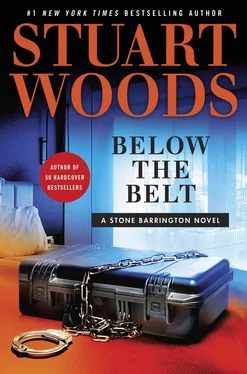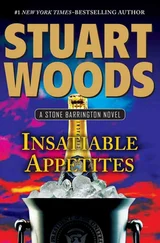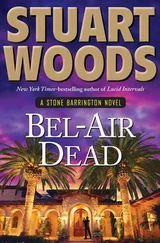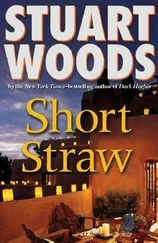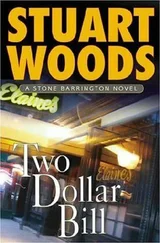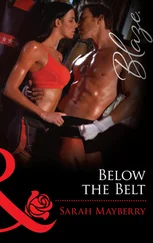“I think he thought there was no point in hanging around here. He will have prepared a place to disappear to — it’s his nature, not to mention his training. He told me he’d be out of the country by midnight.”
Dino looked at him sharply. “And this was after lunch?”
“A couple of hours ago.”
“After he lit out?”
“Yes. He called me on a throwaway.”
“From where?”
“Who knows? He had four or five hours to make himself scarce between the time he left and the time he called.”
“I’ll bet he’s still in the country.”
“He said he’d be out of it by midnight, remember?”
“Does he have any money?”
“His insurance company paid him half a million for his house today and wired it to an account in the Caymans.”
“Plus whatever he had before.”
“He lived as if he had some income, but not much.”
“How do he and his ex-wife get along?”
“They don’t. She died a while back, having not spoken to him since the divorce.”
“I doubt, then, that she would have left the house to him.”
“I doubt that, too, but I don’t care.”
“You don’t care that your client is a fugitive?”
“A fugitive from what? He’s not a criminal.”
“Maybe he burned his own house down.”
“Didn’t I mention he was having dinner with Holly and me at my house when it happened?”
“He’s tech-savvy enough to have done that with a timer.”
“Why would he do that? It was his only home.”
“That you know about.”
“Granted.”
“You know where I think he’d go?” Dino asked.
“Where?”
“Venezuela.”
“That’s not exactly the garden spot of the Americas these days, you know.”
“Maybe, but nobody could ever find him there.”
“Except the Venezuelan police. They wouldn’t be very hospitable to a retired CIA officer. I think he’s somewhere more comfortable. Ed strikes me as someone who likes his comforts.”
“Who doesn’t?” Holly asked. “By the way, you’re both lousy cops.”
“That’s a terrible thing to say,” Dino said, looking wounded.
“You don’t have any evidence of anything, just suppositions. You can’t find a fugitive with suppositions, especially after the big supposition, the ex-wife, is out of the picture.”
“Well,” Stone said, “he has a nice wardrobe from Brooks Brothers. He wouldn’t buy that so he could disappear into the Venezuelan jungle.”
“I’ll give you that,” Dino said.
“Thank you so much.”
“Anyway, he’s not worried about the cops, and only a little worried about the Agency. He’s worried about politics.”
“Politics?” Viv asked. “What kind of politics?”
“National politics.”
“Is he running for President?”
“No, but somebody is going to run against Kate Lee, and I think Ed knows who and why, or at least he knows enough about the candidate to worry that man and his friends.”
“And who would that be?” Dino asked.
“A gentleman called Knott.”
“Not what?”
“Not not — Knott, with a k and two t ’s. Nelson Knott.”
Dino shook his head. “This is all too fantastic for me.”
“It’s not as fantastic as you think. The man has already formed a party, called the Independent Patriot Party, and he’s got a couple of dozen people to put up for Senate and House seats. He wants the whole ball of wax.”
“This is making me tired,” Dino said. “I want to go home.” He raised a finger. “Check?”
Christian St. Clair Watched the chopper drift in astern of the yacht, which was moving along at ten knots, lowering the ground speed of the chopper, which set down lightly on the afterdeck roof. The yacht’s captain waved St. Clair up to the top deck and walked him to the chopper. They both ducked their heads instinctively, even though they had seven feet of clearance, eight feet for Christian.
St. Clair climbed into the rear seat of the copter, set his briefcase on the seat beside him, and put on his seat belt and headset. “Go,” he said into the attached microphone, and the machine rose and peeled away from the yacht, turning to the southwest toward New York.
As they made their way toward the city, Christian reflected on what an important day this was for him. He owned everything a man could want — city houses, country houses, aircraft, seacraft, many cars, and enough art to fill a small museum. There was something else he wanted, though, something that perhaps no one had ever owned: a President of the United States.
Having his own President would make him a kind of benevolent dictator, in his mind. Instead of spending millions a year on lobbyists who conducted subversive campaigns for the legislation he needed, he would simply make a phone call to his President, and his will would be done. Of course, it would still be necessary to buy congressmen and senators, but he had enough of them already to carry any vote, as long as they and the President were of the same party.
He had chosen Nelson Knott carefully and groomed him even more so. Under his tutelage, Nelson had become a man of the people, when he needed to be, and at the drop of a hat. He was also intelligent and well educated, so he mingled nicely with the elite, too. As much at home at a chamber music concert as at the Grand Ole Opry, on a golf course or a NASCAR track, he was ideally suited to command broad appeal, as long as he had Christian’s full financial backing.
Over a period of a few years, Nelson and his wife had found their lot in life becoming steadily more beautiful and luxurious. Whereas they had once stayed at good hotels, now they stayed at great ones, and in large suites. They traveled in what they thought of as their own jet, though it was owned by St. Clair, through a maze of corporations. Their children were at Groton, Mount Holyoke, Harvard, and Princeton. Before the election there would be a gorgeous new concert venue completed in New York City, named Knott Hall, and it would rival Andrew Carnegie’s best work.
Her clothes came from Paris and Milan; his from St. Clair’s own London tailor, shirtmaker, and bootmaker. They lived in four houses, one of them in Branson, Missouri, and in a Fifth Avenue apartment — all designed by leading architects, and their books and artwork were chosen by Christian and impressed all who visited. Nelson had recently become a member of old-line, prestigious clubs in New York and Washington, and he was already playing golf at Augusta National.
Nelson Knott had a quality that Christian had never seen in another human being: he could take the hand of a man, look into his eyes, and become what that man wanted him to be, whether it be hillbilly or mandarin. He could sit at table in elegant homes bought with old-money fortunes, or at the grubbiest fried chicken joint on the interstate and relate, in manner and in depth, with whoever was his dining companion.
He could converse on subjects from Jane Austen to Einstein to foreign policy with experts on those subjects and hold his own, or he could produce baseball and football stats in quantity from memory. He could knock the socks off any journalist who sat down to interview him on any occasion.
Nelson had been profiled in The New Yorker and Fortune ; he would soon be on 60 Minutes , taking up a whole hour, touring his properties, showing off his offices, and unhesitatingly answering any question they could come up with on any subject. When St. Clair had first met him a dozen years before, his mind had been a clean slate, and now, with Christian’s careful tutoring, it was a large, impressionist painting of an American life well lived.
The chopper settled down at the East Side Heliport, where a very large Mercedes van, with an interior like a luxurious corporate jet, awaited his bidding. Christian bade the driver to take him to the Club, in the East Sixties, where he had arranged a luncheon in a private dining room with ten of the most important but politically unaligned men in the United States. The goal was to impress them deeply but make no demands upon them. Christian would leave it to them to spread the word about this remarkable man they had met, his charm and erudition. Then, when the time came, most of them would form and endow political action committees that would reward Nelson Knott with fame and approbation and punish his enemies with ignominy and debasement.
Читать дальше
